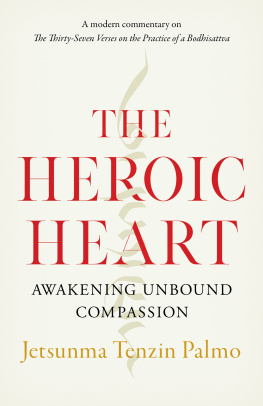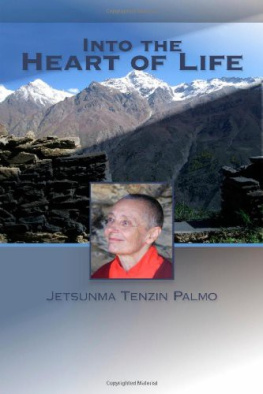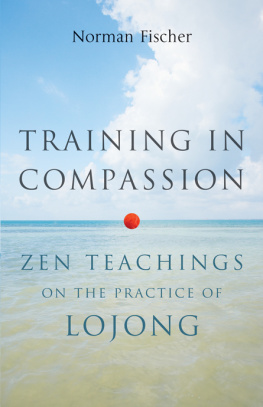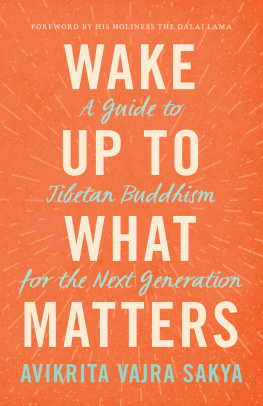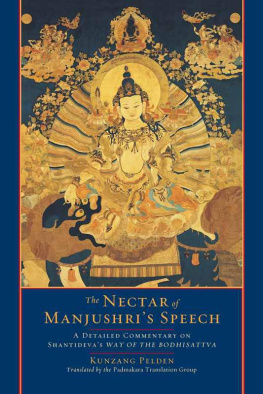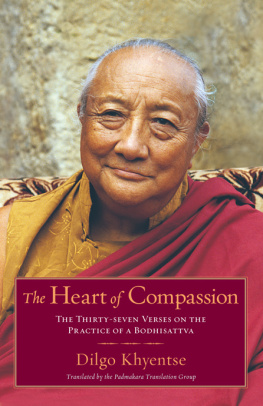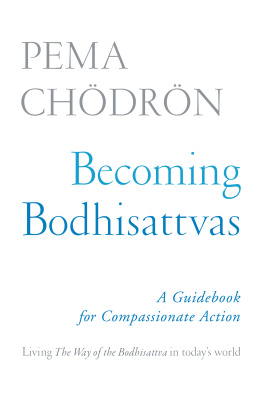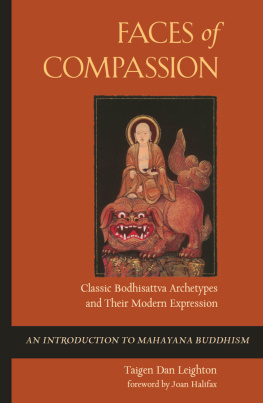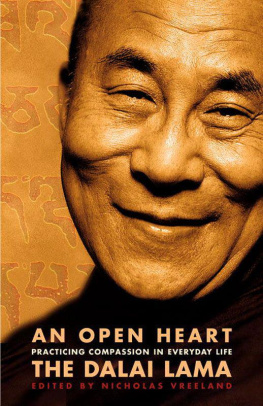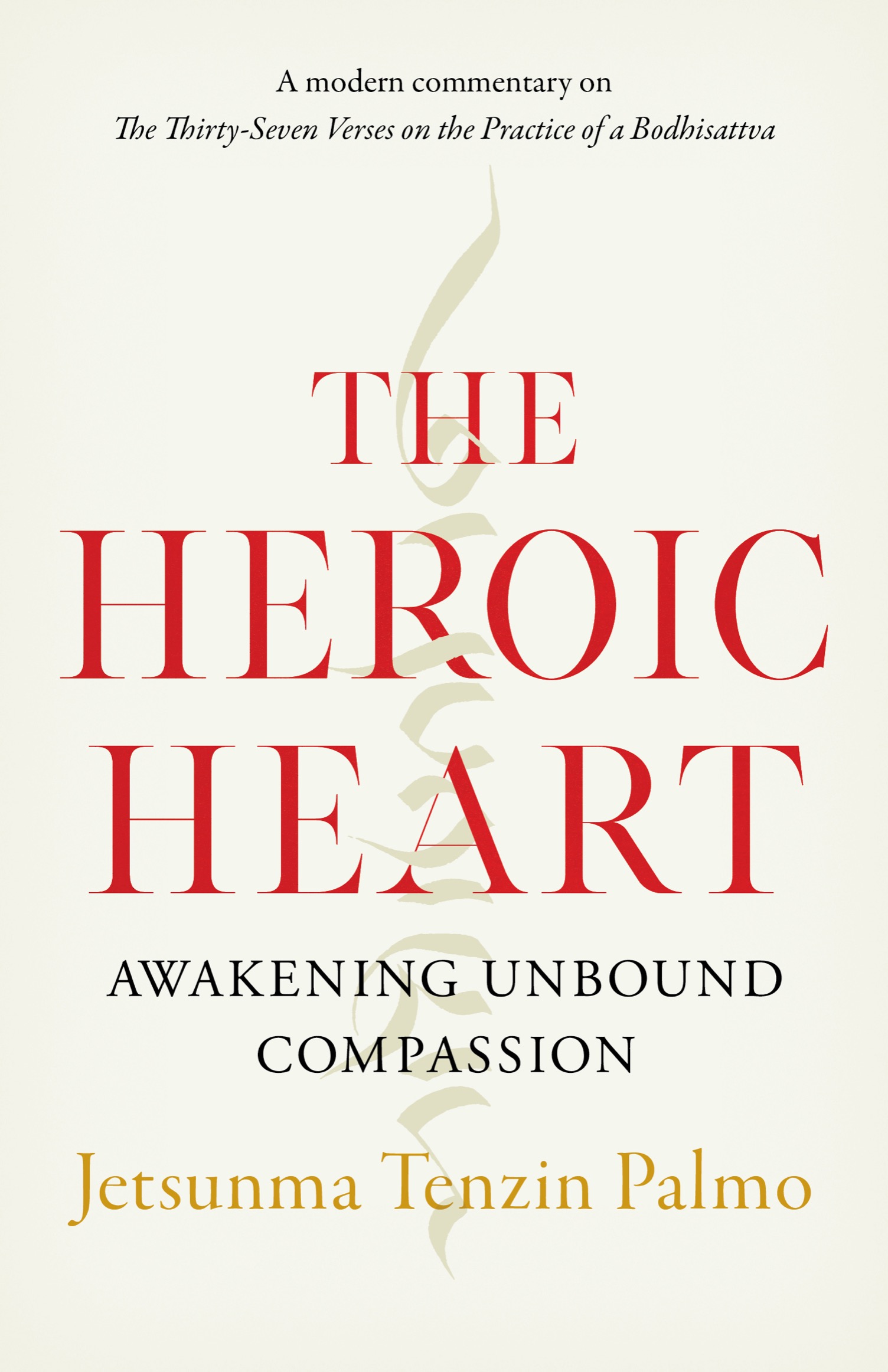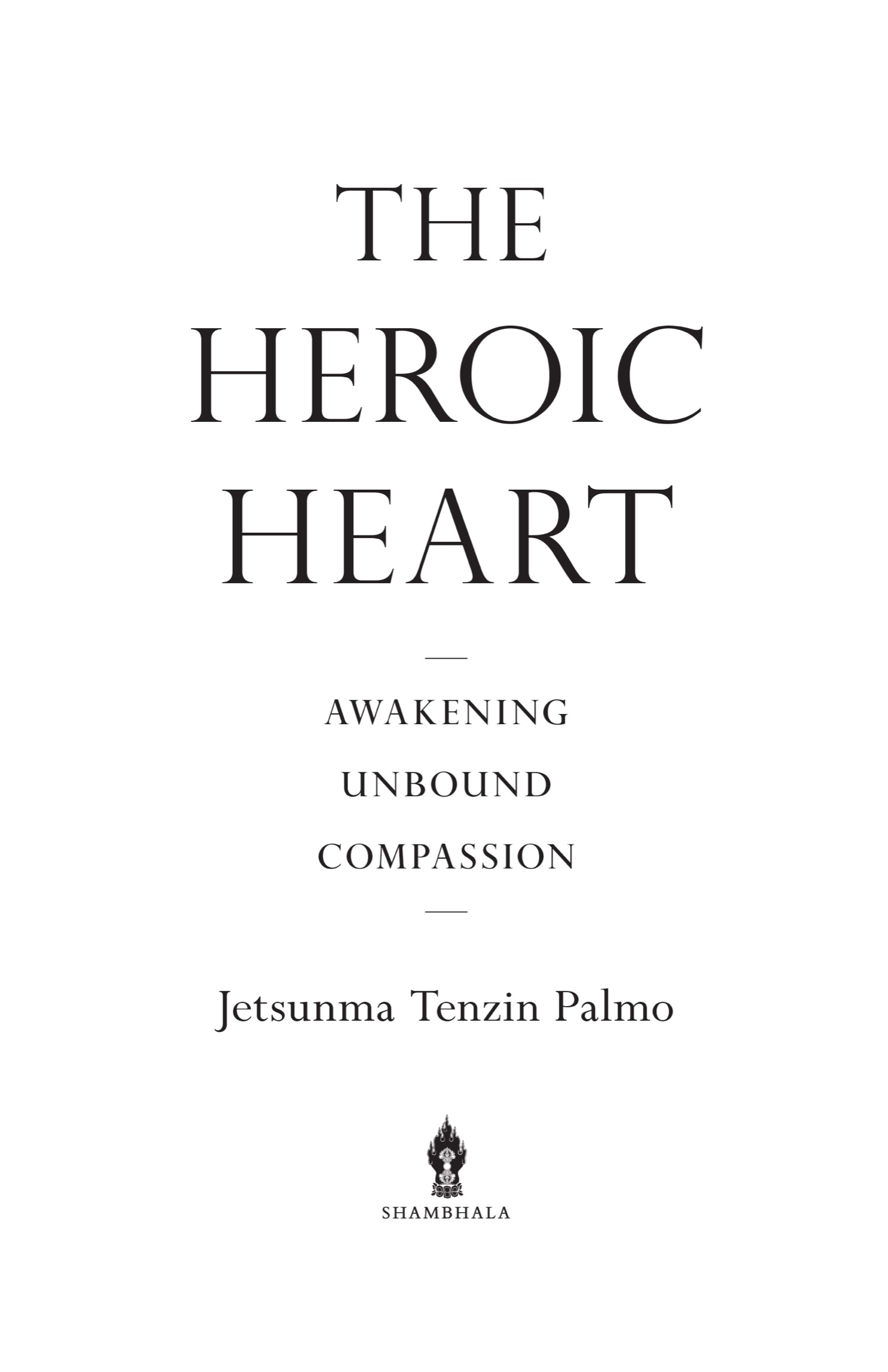Contents
Landmarks
Print Page List
Shambhala Publications, Inc.
2129 13th Street
Boulder, Colorado 80302
www.shambhala.com
2022 by Jetsunma Tenzin Palmo
Verses throughout from The Heart of Compassion: The Thirty-Seven Verses on the Practice of a Bodhisattva by Dilgo Khyentse Rinpoche, translated by the Padmakara Translation Group (Boulder: Shambhala Publications, 2007). Used by permission.
Verses from The Eight Verses for Training the Mind by Geshe Sonam Rinpoche, translated by Ruth Sonam (Boulder: Snow Lion, 2001). Used by permission.
Cover art: calligraphy by Tashi Mannox
Cover design: Daniel Urban-Brown
Interior design: Kate Huber-Parker
All rights reserved. No part of this book may be reproduced in any form or by any means, electronic or mechanical, including photocopying, recording, or by any information storage and retrieval system, without permission in writing from the publisher.
First Edition
Shambhala Publications is distributed worldwide by Penguin Random House, Inc., and its subsidiaries.
Library of Congress Cataloging-in-Publication Data
Names: Tenzin Palmo, 1943 author.
Title: The heroic heart: awakening unbound compassion /
Jetsunma Tenzin Palmo.
Description: Boulder: Shambhala, 2022.
Identifiers: LCCN 2021038864 | ISBN 9781645470557 (trade paperback)
eISBN 9780834844421
Subjects: LCSH : CompassionReligious aspectsBuddhism.
Classification: LCC BQ 4360. T 45 2022 | DDC 294.3/444dc23
LC record available at https://lccn.loc.gov/2021038864
a_prh_6.0_140632918_c1_r0
T HIS BOOK IS DEDICATED to all those who sincerely wish to make their lives meaningful and of benefit to themselves and others. May these words of advice from a bodhisattva such as Thogme Sangpo resound throughout all time and cultures and strike at our hearts, inspiring us to develop a good heart and cultivate loving awareness throughout our lives. The world is in dire need of such goodness.
CONTENTS
ACKNOWLEDGMENTS
Any book such as this depends on so many interconnecting causes and conditions. My first debt of gratitude is to Atisha Dipankara, who spread these teachings on mind training (lojong) in Tibet in the eleventh century. Through him came the Kadampa lineage to which belongs Thogme Sangpo, the author of these present verses. Thence to all the masters who passed down this teaching into the present day. Then I am grateful to the wonderful staff at Deer Park Institute in Himachal Pradesh for inviting me to give the commentary that was the basis for this book over a weekend there some years ago. Deer Park offers a wonderful service to the Dharma by inviting teachers from all traditions to share their knowledge impartially.
The oral commentary, which provided the basis of this present text, was then devotedly transcribed by my longtime friend Arya-Francesca Jenkins. Arya has transcribed so many of my talks over the years, and I am deeply indebted to her for all her skilled efforts on my behalf. Subsequently I edited this transcription for reading purposes but otherwise did nothing about it. However, in time, both Nikko Odiseos and Casey Kemp of Shambhala Publications made overtures about a new book, and I suggested my talks on lojong since this is such a vital and helpful subject for these troubled times. Then in late June 2020, as a wonderful birthday surprise, Dr. Dallas John Baker (Pema Dddul), who is a professor of writing, editing, and publishing at the University of Southern Queensland, offered his expert services in editing some of my talks for publication. This was surely a gift from Tara! So we decided on this commentary on The Thirty-Seven Verses on the Practice of a Bodhisattva since it covers a lot of material and offers plenty of practical advice for daily life. The final revision of the commentary from our side was carefully carried out by the American nun Tenzin Dasel.
The text we rely on here was translated from the Tibetan by the Padmakara Translation Group and previously published in The Heart of Compassion: The Thirty-Seven Verses on the Practice of a Bodhisattva by Dilgo Khyentse Rinpoche. Each chapter of the present commentary opens with a verse from the translated text. We are sincerely grateful for the permission to use Padmakara Translation Groups translation.
Finally, I thank all those at Shambhala Publications who have made this book possible due to their belief in the perennial importance of these lojong teachings. I remain in awe of the kindness of so many good people in helping to bring this book to fruition. My own part seems so minimal.
INTRODUCTION
All experiences are preceded by mind,
have mind as their master,
are created by mind.
The Buddha
T HE QUOTE ABOVE , by the Buddha himself, demonstrates that our minds and the way we use them, how we think, are central to the Buddhist path. Therefore, a method for taming or calming the mind, a way of training it out of its many negative habits, is both crucial and beneficial. Why is it so important to train and tame the mind? Why is it imperative to release the mind from its habitual patterns and uncover its true nature? Because a wild mind tends to harm others. This brings us to the true heart of Buddhismthe liberation of all sentient beings from all forms of suffering. Although we Buddhists talk about realization and enlightenment a lot, that is not our true goal. Our true goal is to free sentient beings from suffering, to free them also from delusion and ignorance of their true nature. Our own enlightenment is the best and surest way to equip us to do that. It is this cherishing of others that is the essence of Buddhism. From the simplest foundational practices to the heights of Mahamudra and Dzogchen, nothing is more important or higher than the selfless expression of boundless compassion, or bodhichitta. Training and taming the mind is the way we give rise to this boundless compassion, and the way we are ultimately able to express our true nature.
We are about to explore an important text on lojong that provides just such a way to tame and calm the mind. The Tibetan word lojong literally means mind training, but the practice really has more to do with training our attitude, training us out of the habitual ways that we respond to situations that happen to us, especially adverse circumstances. The idea is that we take everything onto the path. Some people think that when things are going well, we are healthy and happy and everything is on the up and up, it is a good time to practice Dharma. But when we are faced with adverse circumstancesdifficult people, bad health, and so forththen somehow our practice gets dropped or postponed.
These lojong teachings are about how to take everything, especially adverse circumstances, onto the path. How to use everything that happens to us as a means of inwardly maturing and becoming spiritually strong is the essence of lojong practice. I sometimes compare this to a visit to a gymnasium. The trainer looks at us and says, Well, your arms are not bad, but your legs are very flabby. So we go on the machines and work out. The reason to work hard on those machines is to become strong. We dont resent those machines because they challenge us. If they are too easy, we find more difficult equipment. We recognize that the effort we make on these exercise machines is the reason we now have nice, strong legs. Lojong is rather like that. The fourth-century bishop of Milan, St. Ambrose, referred to the Christian book of Psalms as a gymnasium for the soul. There is also the idea that life itself is a gymnasium of the soul. Even though we dont believe in souls in Buddhism, the idea is a good one. Life is where we have our workout, this is where we train. We shouldnt avoid challenges or only work out on the easy machines.

